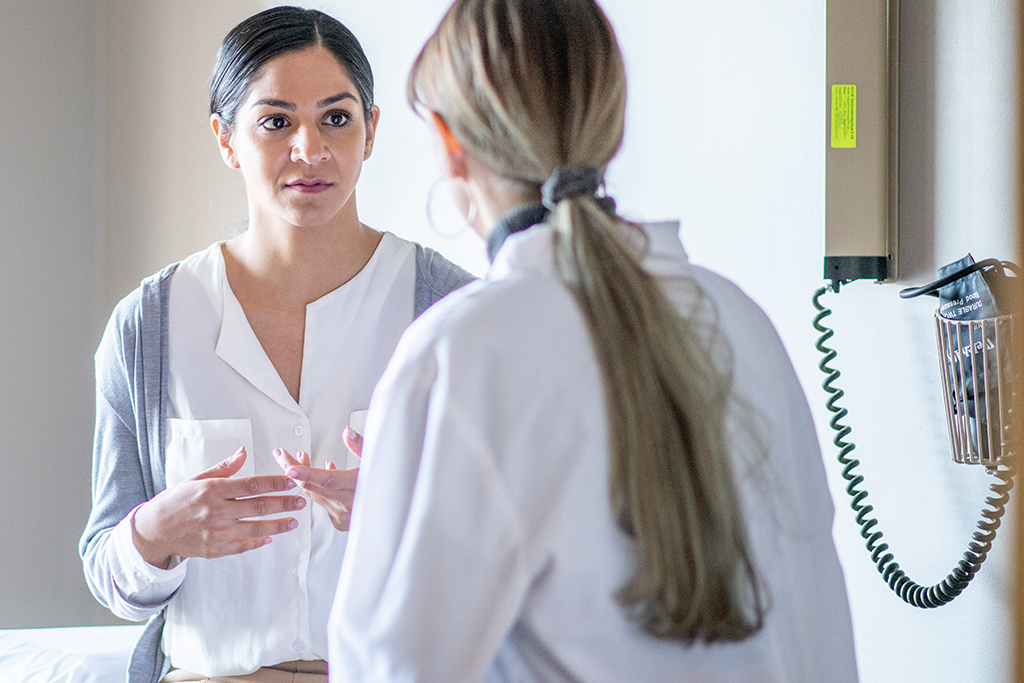
Prevention efforts have made a lot of progress in combating cervical cancer.
Screening has played a vital role in reducing what was once a leading cause of death for American women. Some 14,500 American women were diagnosed with cervical cancer last year, though. More than 4,200 people have died from it in the past year, according to the National Cancer Institute.
January is Cervical Cancer Awareness Month. You might see teal ribbons to bring awareness to cervical cancer this month. There will be activities in your community, including fundraisers. You might also see social media reminders of screenings, vaccinations, and education.
What is cervical cancer?
It’s among many cancers that pathogens, such as bacteria, viruses, and parasites can cause. Cancer cells develop in the cervix, which connects the uterus to the vagina. It usually develops slowly.
It begins when healthy cells in the cervix undergo mutations in DNA. A cell’s DNA includes instructions for cells.
Cervical cancer doesn’t always have symptoms. In rare cases, a woman might experience erratic bleeding or pain. Physicians treat cervical cancer with:
- Chemotherapy
- Radiation
- Surgery
Symptoms of advanced cervical cancer
These include:
- Vaginal bleeding after intercourse, between periods or after menopause
- Watery, bloody vaginal discharge that might have a foul odor
- Pelvic pain or pain during intercourse
A Pap test can reveal cervical cancer and lead to treatment at the precancerous stage. During this screening, providers collect cells from the cervix’s surface for examination. Early detection of cancer can lead to more successful treatments.
It can also reveal precancerous irregularities. Early detection is key to treatment to prevent it from becoming cancerous.
Screening and prevention
Screenings are crucial to eliminating cervical cancer. Human papillomavirus infection leads to most cases of cervical cancer.
The HPV vaccine can contribute to total prevention. The body’s immune system prevents HPV from doing harm in most cases. In some hosts, it can survive for years, posing a danger of developing cervical cancer.
The three U.S. Food and Drug Administration-approved vaccines are:
- Cervarix
- Gardasil
- Gardasil 9
These vaccines can control infection with subtypes of HPV, including 16 and 18. Those are two high-risk HPVs responsible for 70% of cervical cancers.
The CDC advises adolescents ages 11 to 12 to include the vaccine in their immunizations.
Women who don’t have the vaccine at that age can get a catch-up vaccination through age 26. Health care providers will vaccinate patients as much as until 45 years old. Men can get the vaccine through age 21.
The World Health Organization says we could eradicate cervical cancer if:
- 90% of girls get vaccinated
- 70% of women get vaccinated
- 90% of women with cervical disease get treatment
Gardasil 9 vs. HPV
The American Association of Cancer Research studied HPV infections in 12,514 women, ages 15 to 45. The subtypes Gardasil 9 targeted made up 91% of the most advanced cervical precancers.
That means Gardasil 9 is effective against 90% of cervical cancers.
Vaccinate Your Family is an advocate for vaccinations to combat preventable diseases. It says HPV vaccines are safe and effective.
About HPV
HPV is the most commonly contracted sexually transmitted infection in the United States. Nearly 80 million Americans, most in their teens to early 20s, carry the infection. About 80% of all sexually active people will contract it.
HPV can also cause cancers in other areas, such as:
- Anus
- Back
- Penis
- Throat
- Vagina
- Vulva
There are no screenings such as the one for cervical cancer for these cancers.
HPV infections usually go away on their own. They can lead to cervical cancer and other illnesses when they don’t. Most women should have cervical cancer screenings every three years from age 21 to 65. Your doctor might recommend a different frequency based on your medical history.
Turn to Wilmington Health for your cervical cancer screening
Whether you’re on the timetable for screenings or need to catch up, Wilmington Health OB/GYN can help. Our board-certified gynecologists and obstetricians provide care for women, from puberty through adulthood. Schedule an appointment today.
